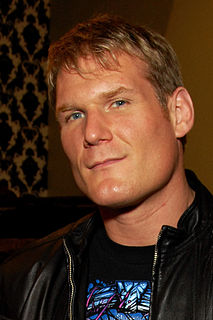A Quote by Aza Raskin
You can never let your data dictate design. If you do, you end up following what people currently do and never innovating.
Related Quotes
The USA Freedom Act does not propose that we abandon any and all efforts to analyze telephone data, what we're talking about here is a program that currently contemplates the collection of all data just as a routine matter and the aggregation of all that data in one database. That causes concerns for a lot of people... There's a lot of potential for abuse.
There are lots of lessons to learn from Amazon. Never stop innovating or questioning the fundamentals of your business. Disrupt yourself before others do. Continually motivate employees so that they never get too complacent - see Yahoo, AOL and many other Internet companies for evidence of what happens when they do.
I used to get tons of letters that said, "I'll never get to wear you," or "I'll never get married in one of your dresses," or "I'll never have an evening gown like the one I saw on the red carpet." I thought that was sad, because you give your life to this and you end up reaching very few people. So that was a major goal for me - to be able to reach and encourage more women, to encourage them to express themselves and be what they want to be.
For you [God] are infinite and never change. In you "today" never comes to an end: and yet our "today" does come to an end in you, because time, as well as everything else, exists in you. If it did not, it would have no means of passing. And since your years never come to an end, for you they are simply "today."
I was specifically referring to the regular everyday people that you come across on your come up. You never know if that intern that you disrespected might end up being the CEO of the company one day, you honestly never know who's who. It's easy to treat the stars and the executives with respect but how do you treat the security guards or the waiter that serves your food? You may have to cross that bridge later.
When you never leave the literary biosphere, you forget how few people actually read books, and that in turn makes you start overestimating both your ability to make money and your relative renown, which has dangerous consequences: the first means you may end up in debt; the second means you may end up a horrid bore.
































